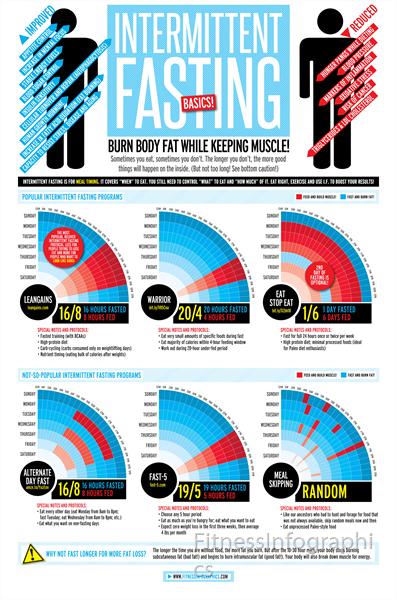I listened to a podcast from the Chalene Show a couple weeks ago about intermittent fasting. It was a dieting concept that I had never heard of and was totally skeptical about at first.
What is Intermittent Fasting?
When I first heard them talking about this, I immediately thought, "This is starving yourself and ruining your metabolism." But then I started hearing the intricacies of it.
Intermittent fasting, explained simply so silly people like me can understand it, it not eating at all for 16-24 hours, then following that period by eating what you would normally consume over the course of one full day in 4-8 hours.
There are several versions of this:
- 16 hours fasting + 8 hours eating (focus on high protein)
- 24 hours of very low calories cycled with 24 hours of regular caloric intake
- 20 hours fasting + 4 hours eating (based on cavemen - fo' real, what is the fascination with cavemen?)
This seemed crazy until I realized the fasting hours included the time that you sleep. Which makes the 16/8 version seem almost normal. If you sleep 6-8 hours, don't eat til lunch, then make sure not to snack after dinner, you're golden.
The big point too is that you aren't eating LESS; you aren't really skipping meals. You're just packing them into a shorter time frame. If you were told to eat 1700 calories per day, you still do. Just within your eating hours. So your body is getting the fuel, calories, nutrients it needs, but just in a specific scheduled block.
The whole science behind it is to lower your blood glucose during your fasting hours, thereby lowering your insulin production. Less glucose and less insulin means your body may burn stored fat as fuel.
Is that really a good idea?
This is certainly not without its downsides and dangers. There is a definite chance your body could burn protein (muscle!) as fuel too. Supplements and protein powders are supposed to prevent this though. Also, doing it for too long could cause your metabolism to start adjusting to the starvation mode. No bueno!If you have blood sugar problems, it's not a good idea. No diabetic comas, please.
So, basically, you need a professional to help you do this and avoid the potential pitfalls.
Why would anyone WANT to do this?
Full disclosure. I do NOT plan on trying IF. Eating frequent small meals during the day (the frequent feeding model) is working for me. I'm a natural grazer; I'm probably part Guernsey. I get all shaky and 'hangry' if I go without food for too long. And I'm a BIG believer in breakfast. It's my favorite meal. Take breakfast from me, and what is the point of getting up?
Okay, sorry, so why would someone else (not me) want to do this? Because EVERYONE IS DIFFERENT. There are some of you who have to choke down breakfast. You don't want to eat it. It makes you gag a bit. Well, this might be for you. If you've been trying the frequent feeding model and aren't seeing results, or have to force yourself to choke down your food when you're not hungry, then IF might be something to look into.
Where can I find out more?
If you're interested, make sure to listen to Chalene's podcast on it. It's very informative. She has a lot of links for more information on the whole thing.
There's also some popular methods to look into, like The Warrior Diet, Lean Gains, and many others.
But don't do this without talking to a nutritionist, doctor, or at least someone who's done it before. It might be fantastic, but it could also be pretty dangerous if you do it wrong.



No comments:
Post a Comment